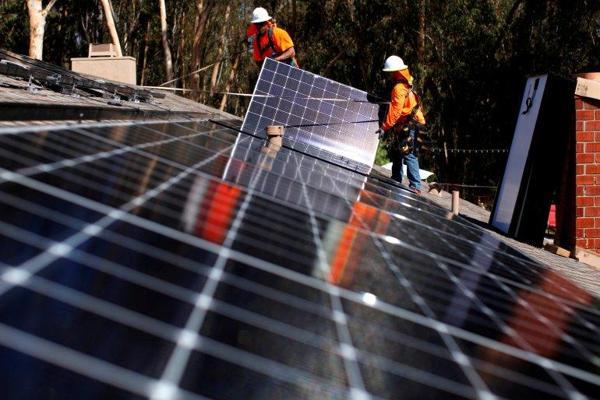China, S Korea hit out at new US trade tariffs
BEIJING - Agence France-Presse


China and South Korea on Jan. 23 hit out at a U.S. decision to impose stinging tariffs on imported solar panels and washing machines, which marked the latest salvo in Donald Trump’s “America First” drive.
The U.S. president approved the steep tariffs -- up to 50 percent on large washing machines over three years and up to 30 percent on solar panels over four years -- to protect U.S. producers, U.S. trade officials said.
But South Korea, which signed a free-trade agreement with former President George W. Bush, immediately said it would file a petition against the U.S. at the World Trade Organization.
The country’s Trade Minister Kim Hyun-chong said the tariffs were “excessive” and may constitute a “violation of WTO provisions.”
Samsung, South Korea’s biggest firm, said the tariffs were “a tax on every consumer who wants to buy a washing machine.”
In Beijing the commerce ministry warned that “together with other WTO members, China will resolutely defend its legitimate interests”, though it did not indicate any specific counteraction.
The U.S. moves “not only aroused the concern of many trading partners but was also strongly opposed by many local governments and downstream enterprises in the U.S.”, the ministry said in statement attributed to Wang Hejun, the director of the trade remedy and investigation bureau.
Beijing “expresses its strong dissatisfaction,” Wang said.China is the United States’ biggest trade partner nation but Trump has often hit out at what he calls unfair practices by Beijing, accusing it of killing US jobs.
While running for office, Trump threatened to pull out of the WTO and his hostility to the world trade body has not let up while in office.
Last week, the Geneva-based body sided with Beijing in setting a firm date this summer for Washington to implement a ruling faulting the US’s anti-dumping measures against Chinese products.
The U.S. had previously lost a case with China on how it calculates the price of imports to determine predatory pricing, and said in June 2017 that it would implement the panel’s recommendations within a “reasonable” timeframe.
The WTO arbitrator gave Washington until August 22 to implement the ruling.
